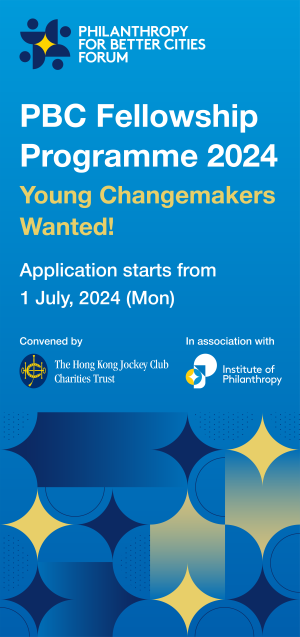As narrative and culture change become increasingly prominent in the discourse of social movements and philanthropy worldwide, there is a strong desire to better grasp the concepts and practices that allow the full potential of these strategies to be realised.
Last month, I attended a popular session at the Human Rights Funders Network conference in Tbilisi that explored a common question: how can philanthropy resource revolutionary narrative and cultural strategies?
The exploration was led by philanthropic strategist and narrative expert Mandy Van Deven, who set off with a reflection on the ways narratives shape our everyday lived experiences through the systems in which we operate.
‘The narratives that govern our lives aren’t just present in the stories we tell each other verbally or the ideas we hold in our hearts and minds. They are present in the ways our systems are designed and in how we behave,’ she said. ‘If we seek to build societies of care, reciprocity, and interconnection, then we have to be sure that the narratives we embody in our ways of being reflect the practices that will move us closer to a world of justice and liberation.’
After laying the groundwork for the conversation, Van Deven moved into a co-learning experience that tapped into the rich and diverse experiences of both participants and speakers. The panel featured practice insights from Erin Williams (Constellations Culture Change Fund), Abi Knipe (Global Narrative Hive), Ivens Reis Reyner (Nebula Fund), and Laura Vergara (Our Collective Practice), and key themes emerged during this process of collective sensemaking.
Emergent strategy
Narrative work is intergenerational and takes place across decades and diverse contexts. This means the work to resource it must be actioned along parallel lines to support the narrative infrastructure that movements need to build and sustain power. This requires philanthropy to opt for approaches that are more about cultivation than engineering, to embrace the role of resource steward rather than agenda setter, to operate with a greater appetite for risk and openness to experimentation, and to place value on the process rather than predetermined outputs or predictable outcomes.
‘Cultural and narrative strategies are fundamental in shifting societal mindsets and driving action towards advancing human rights,’ said Lane Harwell, Senior Program Officer of Creativity and Free Expression at the Ford Foundation, who attended the session. ‘To truly unlock the transformative potential of these strategies, funders must collaborate beyond traditional boundaries. They should take cues from creatives, strategists, and grassroots organisers, and support experimental approaches.’
Collective wisdom
Narrative transformation is necessarily a collective effort, and the speakers offered many perspectives on what philanthropy should be funding: from co-designed collaborations across issues and sectors, to establishing relationships across geographies, to nurturing existing networks and movement-accountable philanthropic intermediaries. Resourcing narrative work can also be an invitation for funders to work more powerfully by stepping out of thematic funding silos and adopting grantmaking practices that are designed by deeply listening to movements.
‘Narrative organisers, culture bearers, and artist disruptors help us to visualize and become architects of a future where justice and equity are foundational,’ said Erin Williams. ‘We are learning that funding through a narrative system can act as a North Star that guides us to de-silo areas of work and functions as intersectional inspiration.’
Adopting an ecosystem approach in philanthropy takes the form of supporting diversity, redefining expertise, and providing platforms that uplift narratives organically emerging from communities. By centring proximate communities, we expand the potential of powerful solutions and open possibilities to foster the dreams of those who are agents of beauty, carriers of inspiration, and weavers of new worlds.
Beyond liminality
Liminality is the space between what is no longer and what is not yet. Narrative and cultural strategies exist in a liminal space as philanthropy’s interest grows yet funding investments remain tentative. Many funders struggle to find a place for narrative resourcing among their current practices, existing systems, and persistent worldviews on how change is made.
This session shed light on the many ways to step into narrative resourcing – through one’s own grantmaking or by joining any of the speakers’ funding collaborations. It was an exciting glimpse into new possibilities for philanthropy, ones where our dominant narratives reflect abundance and care, interconnectedness and justice, joy and reciprocity. What if we choose to collectively nurture each other in this liminal space and find ways to move through it together? Through its design, that’s precisely what this session showed us how to do.
Chiara K. Cattaneo is the co-lead of Elemental, an emerging community of practice for funders that seek to cultivate the conditions to resource narrative power.





Comments (0)
Thanks very much for this. I agree with "four colors", truly wonderfully thought-provoking work. It's essential for these times as we work for transformation of our world where all people can life in its fullest, with dignity and full enjoyment of human rights.
This is truly a wonderfully thought-provoking work.